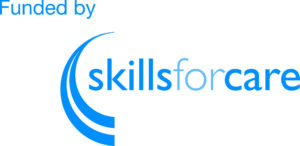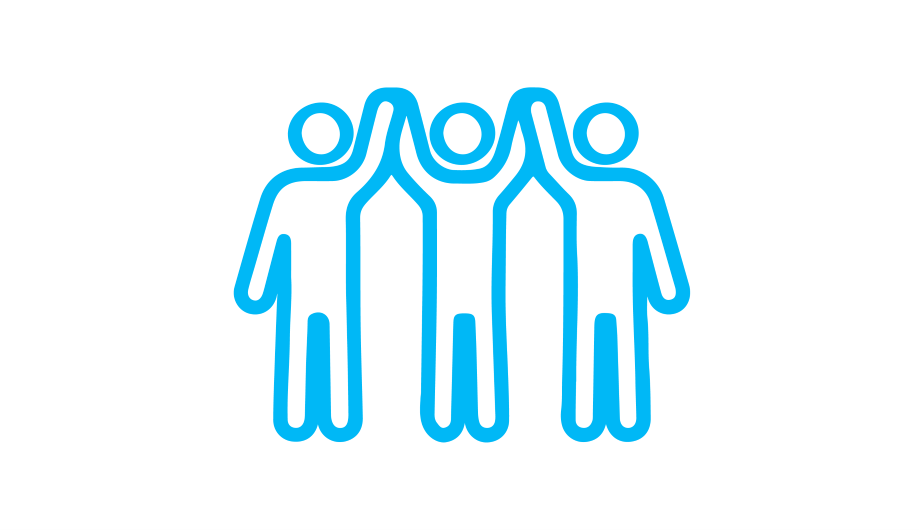Why might PBS be a helpful approach?
The overall aim of PBS is to improve the quality of a person’s life and that of the people around them. This includes children, young people and adults, as well as older people.
Who is PBS for?
PBS can be used for a range of individuals with different needs – it is recommended for individuals who display (or are at risk of displaying) challenging behaviour. PBS is suitable for individuals with mild to severe learning disabilities, as the strategies used are always tailored to the person. If the person you support has a diagnosis of a learning disability then PBS is likely to be suitable for them.
What is good about it?
PBS puts the person first. PBS helps us to understand and address the underlying needs that lead to behaviours that challenge. The focus is on better supporting the person through improving their quality of life. PBS is pro-active, meaning it focuses on getting the environment right for the individual, rather than based just responding following challenging behaviour.
PBS does not use force and at no point will an individual be punished for displaying challenging behaviour. All the support strategies used within PBS should be acceptable to the person and their family, and where possible jointly planned with them too.
PBS approaches are based on a set of values of enabling inclusion, choice, participation and equality of opportunity. Developing the person’s skills is important in PBS and the person should be enabled to do things themselves, with appropriate support. PBS is about working in partnership with the person, their family, staff and professionals.
Other evidence based approaches and therapies can be used within PBS, such as Speech and Language Therapy, counselling or therapy for trauma or diagnosed mental health problems. PBS is ‘compatible’ with other approaches.
How do we know it works?
There is strong evidence that PBS is effective in producing positive outcomes, such as increasing the person’s skills and positive life opportunities. The approach is based on psychological theory, using processes of Applied Behaviour Analysis. PBS has been developing within a variety of settings for many years and has a strong ‘practice base’, i.e. PBS is being used successfully.
The PBS Competence Framework, produced by the PBS Academy, lists some of the evidence for PBS and shows the importance of PBS being put in place well and throughout organisations. The PBS family resources explain how family carers can apply PBS principles and how to check whether organisations are using PBS to support their relative.
Video explaining how PBS can be put into practice by professionals and families
How do we make PBS happen?
Making PBS happen relies on the people involved in a person’s life, the skills to use PBS well and the commitment to carry it out.
The people
PBS is most successful if everyone supporting the person uses it, for example, when the person’s family, care provider or school and their respite service all agree to use PBS. They should follow a shared PBS plan and communicate regularly about any changes to the person’s support plan. This ensures the person is supported consistently throughout their day and week, in different settings.
A barrier to making PBS happen can be when a service or a family aren’t aware of PBS or are reluctant to make a change. You may want to use the resources below to inform others about the benefits of PBS and encourage its use.
The skills
Family carers, paid carers and other professionals need to understand PBS and have the skills to use it well. They need to be given reliable information and good quality training. The training should be at the right level for the understanding that they need in their role. There is a growing variety of courses available for these needs.
The skills, or competencies, needed to make PBS happen have been set out by the PBS Academy. The PBS Competence Framework describes skills relating to the support and environment, how assessments are carried out, the PBS plan and monitoring the use of PBS.
The commitment
PBS doesn’t happen overnight. The approach is not a complex one, but to make it work in a whole service or between services and family, everyone involved needs to come together and make changes. All levels of an organisation, from the support staff to the managers and directors should do their part to implement PBS, for it to work well. Those who commission or fund services also have a role in supporting PBS.
Supporting people using PBS is a long term commitment for everyone to deliver good outcomes for the person.
Where to find more information about PBS
- PBS Academy Website – free resources about PBS, aimed at family carers, commissioners and service providers.
- PBS Animation– A six minute animation from BILD that summarises PBS.
- PBS Key Messages– a 3 page quick information sheet about PBS, jointly produced by the BILD Centre for the Advancement of PBS, NHS Health Education England, Skills for Care, CBF and PBS Academy)






